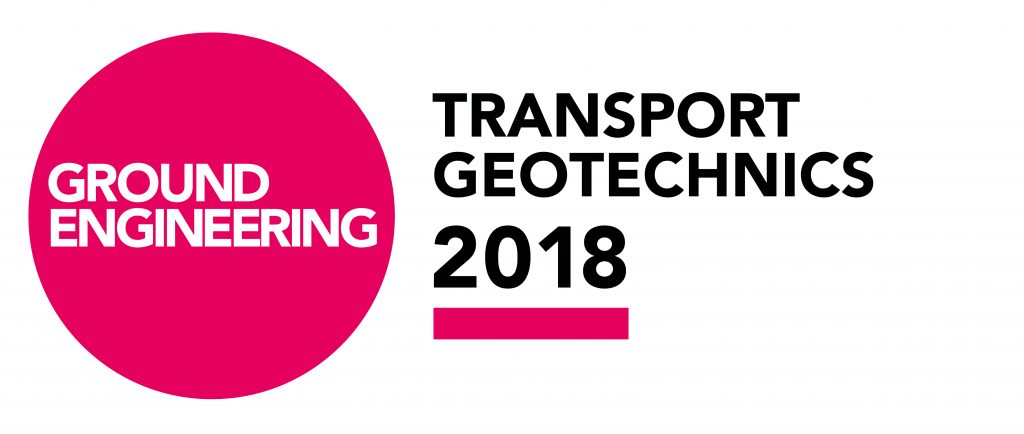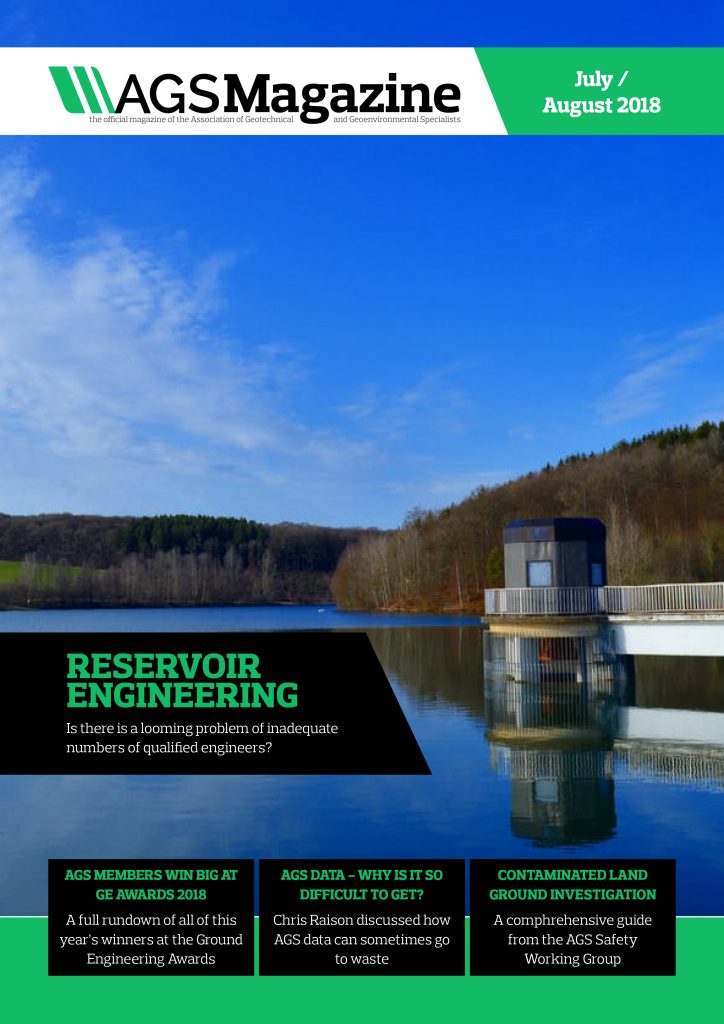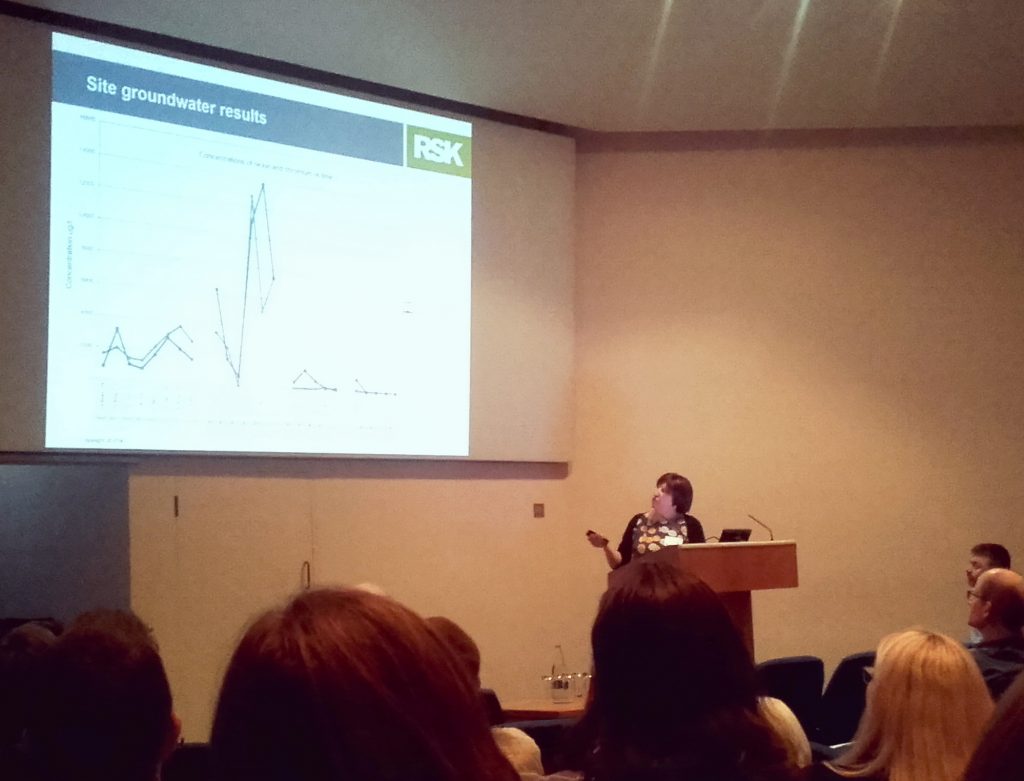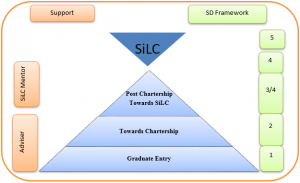An opinion piece, written by Chris Raison, Director of Raison Foster Associates
AGS digital data is the source data for most ground investigations. It allows rapid and accurate passing of information through the entire construction team, from the Site Investigation and Laboratory Testing Contractor, to the ultimate user of the data; the Engineer, Main Contractor or Specialist Contractors. As an ideal, AGS data removes the need for users to re-enter data for use in the design. It increases accuracy by avoiding typos and data translation errors, and it speeds up review and assessment of the data. It provides the full data set to all subsequent users and avoids the filtering and random selection that hardcopy data can be subject to. But is it actually achieving these benefits across the construction industry? Why is it so often difficult to obtain? Why isn’t AGS data being universally used on all projects, from big to small? What can the AGS do about this? Does the AGS actually recognise that there is a problem?
Part of the problem is viewpoint
Most Site Investigation and Laboratory Testing Contractors record and store their data using software and data processing that is compatible with and generates AGS data. Borehole logs, laboratory presentation plots, report tables and figures are all generated from their AGS data. From their perspective, the data is available and is used. It is what happens next that controls availability to others.
Large Consulting Structural and Civil Engineer organisations do recognise the value of AGS data for all sizes of project. Scope of works and specifications for ground investigations will include requirements for the GI Contractors to provide AGS digital data together with their final GI reports [GIR]. They will usually offer and provide the AGS data to the Main and Specialist Contractors working on their projects. From their viewpoint, ‘AGS data is working ‘. ‘Why worry about it ‘?
But are these viewpoints acceptable? Is this the universal experience with AGS data? I would suggest this is not the case.
Many organisations approximately follow the 80:20 rule. It is probable that 80% of geotechnical design in terms of value is being carried out by 20% of the Engineering Consultants, the larger companies already using and valuing AGS data. So, no problem here.
Conversely, the remaining 20% of geotechnical design is therefore being carried out by 80% of the Consultants and Architects, invariably much smaller companies carrying out smaller projects with lower value. But it is likely that much more geotechnical design [in terms of numbers of projects] is being carried out in this sector, albeit by [possibly] less informed and smaller design companies. It is these organisations that are failing to specify AGS data. Even when offered and available, the smaller design companies are failing to pass on this data to subsequent users such as ground improvement specialists, piling contractors or their designers.
Can we improve this situation? And if so, how?
I would suggest that this issue is wrapped up in the much larger problem of inadequate and insufficient ground investigation; much more common and prevalent for the smaller projects, despite the increased risk to all parties. Education and warnings apparently have not been working for this sector. If it were, we would almost certainly be seeing across the board improvements within the site investigation industry. But I do not see this.
Therefore we are not going to solve this problem by trying to inform and educate the smaller Engineering Consultants and Architects. What else can we try?
How about encouraging the GI contractors to provide AGS as a matter of course on all their projects? Without any request, and without arbitrary obstacles, particularly the legal argument; ‘it is not our data, it belongs to the Client ‘. Or, ‘you are not entitled to use or rely on this data, as you are not party to the contract ‘. But is there really any difference between a borehole log, or a test result, and the AGS digital data that is used to produce the log or test output table? If you have one, why cannot you have the other? I would argue there is no difference, and no reason.
So how do we do this?
One option would be a centralised database, perhaps controlled by the AGS? Or the British Geological Survey? But a nightmare to control. And critics would say, ‘access needs to be restricted to approved users only ‘, and we are back to where we started. Chasing down approval to obtain AGS digital data through a convoluted contractual chain.
More sensible would be to embed the AGS digital data into the GIR. This could be done in two ways, dependent on the form of the deliverable; for Acrobat PDF file versions of the GIR, the AGS data could be linked directly to the PDF file. For hardcopy versions, the AGS digital data could be attached as additional text pages to the rear of the GIR to allow scanning and OCR conversion to digital data. Both options would allow users of the GIR to immediately access the AGS digital data.
Perceived problems
For some reason, many specialist GI contractors and Consulting Engineers have a misplaced view that AGS digital data is different to the GIR itself. As a result, access has to be restricted unless the user can jump through convoluted hoops and be questioned about why they want the data, and why they believe they should have access. But as pointed out above; AGS digital data is used to generate borehole logs, laboratory presentation plots, report tables and figures. As such, the data could be reverse engineered from the GIR, but at vast expense and effort, with risk of error and transcription problems. But why?
In my view it is time the GI industry addressed this problem, added value to their reports and generally reduced the potential for waste and expense experienced by users of their data.
This article is the personal view of the author and does not represent official policy of the AGS. It has been written to stimulate discussion, particularly from the GI industry that is responsible for preparation and generation of most AGS digital data.
Chris Raison is the owner and one of the founder members of Raison Foster Associates, a Specialist Geotechnical Consulting company working for a range of Clients varying from Main Contractors, Specialist Piling/Ground Improvement Contractors, Civil and Structural Consulting Engineers.
This article was featured in the July/August 2018 issue of the AGS Magazine which can be viewed here.




